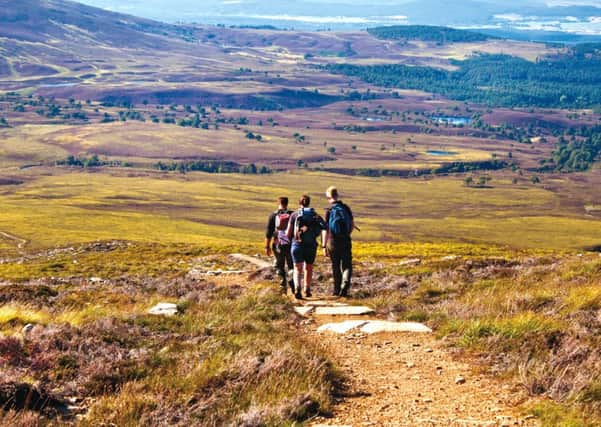Who owns Scotland? Find out in 10 years’ time


All of Scotland’s land will be registered for the first time to provide a clear understanding of who owns it. Environment minister Paul Wheelhouse unveiled the project days after an expert group published a major report on land reform.
That report came under attack after it set out that a new law would impose limits on how much land private owners can hold in Scotland. The latest move will see the Registers of Scotland prepare to complete Scotland’s land register within ten years. It has committed to register all public land within five years.
Advertisement
Hide AdAdvertisement
Hide AdCurrently, 26 per cent of the land mass of Scotland is on the Land Register. Wheelhouse said it was important to have “a clear understanding of who owns our land in Scotland”.
“This will benefit everyone as land transactions are more difficult and expensive if it’s not already on the land register. This is a vital underpinning step in Scotland’s land reform journey and will ensure that at last everyone will know who owns Scotland.”
On Friday, the Land Reform Review Group set out 62 recommendations in a report. Among the suggestions, it calls for a new law to limit how much land any single person can own in Scotland.
It says councils should be given the right to force the sale of vacant or derelict plots.
The group wants the Scottish Government to be “radical in its thinking and bold in its action”.
It also said local government taxation needs to be modernised and that serious consideration should be given to introducing a system of land value taxation, which could be an alternative to the council tax. But the government appeared to rule out one recommendation on taxation within hours of the group’s report being published.
Experts said there is no clear public interest in keeping a universal exemption of agriculture, forestry and other land-based businesses from non-domestic rates.
A spokesperson for the Scottish Government stated: “We can confirm there are no plans to make changes to the position of agricultural business rates relief.”
Advertisement
Hide AdAdvertisement
Hide AdAn efficient and indemnified land registration system is recognised by the World Bank as one of the most important factors in achieving economic development and business growth, the government said.
Sheenagh Adams, Keeper of the Registers of Scotland, who will be consulting on all aspects of completing the new register, said: “The Land Registration(Scotland) Act 2012, which will fully come into force later this year, gives us the powers to achieve this.
“We look forward to working closely with property owners across Scotland to ensure Scotland’s citizens and institutions reap the social and economic benefits that flow from a publicly guaranteed system of rights in land and property.”
The Scottish Law Commission, which was set up to recommend ways of simplifying, updating and improving the law of Scotland, has identified the Land Register as part of the “national infrastructure” as it affects every square inch of the country and the whole of Scotland’s economic life.